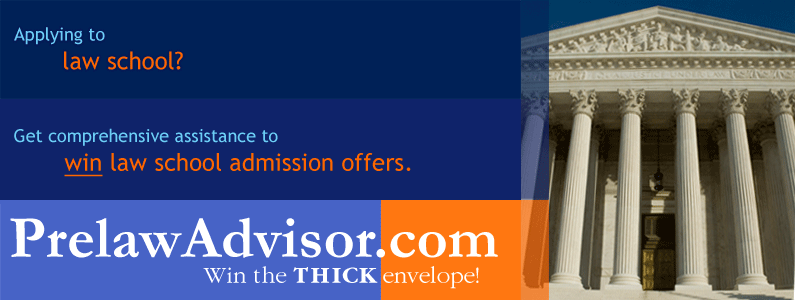A Dazzling Triumph for the University of Detroit Mercy School of Law
 Wednesday, May 23, 2007 at 10:31AM
Wednesday, May 23, 2007 at 10:31AM The University of Detroit Mercy School of Law ranks in the fourth tier of American Law Schools, according to the 2007 U.S. News & World Report rankings. The fourth tier can be a very painful place for students. I regularly hear from fourth-tier students trying to escape from this "penalty box."
Yet in today's Wall Street Journal ("How Obscure Law School Places Grads at Top Firms", May 23, 2007, by Amir Efrati), we read that Detroit Mercy has actually placed a handful of students at summer jobs with elite national law firms, such as Paul, Hastings, and Mayer, Brown. Further, lawyers from Skadden Arps and Fried Frank now send a representative to Detroit Mercy to recruit on campus.
How has such a stunning development happened? How could a fourth-tier law school attract some of the most prestigious and demanding of legal employers? How could several Detroit Mercy law students end up in summer clerkships there, where their colleagues are usually from the law schools of Yale, Harvard, Stanford, NYU and Columbia?
An incredibly creative dean at Detroit Mercy, Mark C. Gordon, a Harvard Law graduate, created a lawyer network--an advisory board--to generate ideas for school improvement, while at the same time introducing some of his top students to lawyers and firms they would otherwise never get to see. Dean Gordon also persuaded in-house attorneys from major Detroit companies to speak to their outside counsel--often the elite firms--to invite some of their lawyers to join the advisory board, further expanding its strength and influence. Major lawyers and firms have now taken enough interest in advancing the development of Detroit Mercy that the Wall Street Journal found the story fit to publish. I think we'll see that Detroit Mercy is significantly lifted by this publicity.
Dean Gordon has insisted that Detroit Mercy better serve legal employers by developing, with the advisory board's ideas and contributions, a series of courses that simulate law-firm practice, thus better preparing Detroit Mercy grads for real-life practice. While pooh-poohed by some major law schools, such real-life simulations are the path that lower-tier law schools should take. Such schools should build and stress exceptional competence in developing students for real-life, law-related work, and bar passage rates that eventually exceed their higher-tier competitors.
Someone insightfully once criticized law school in baseball terms: "Law school is like studying the science of pitching and batting--for three years--without ever actually playing a game or hitting a ball." Yale can get away with this, but fourth-tier schools certainly cannot. Their graduates need to be able to work as lawyers from day one on the job.
This Detroit Mercy response, and its success--so noteworthy that the Wall Street Journal is now watching--is a powerful lesson for every law school, particularly those wanting to deliver a more effective education to their student customers. I hope Detroit Mercy's success starts a trend. I'll be watching this school more closely.
For more information about my services to law school applicants and transfer applicants, please see my website at www.PrelawAdvisor.com .

